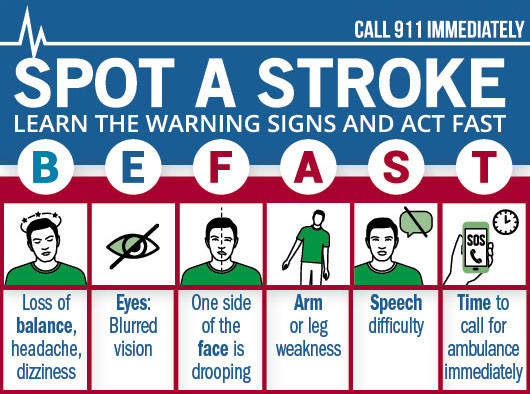Disclaimer: This article is for informational purposes only and does not constitute medical advice. Always consult a qualified healthcare provider if you have symptoms or are concerned about your cardiovascular health.
1. Introduction
Stroke and sudden cardiac death are two of the leading causes of mortality in the United States. Each year, approximately 795,000 Americans suffer a stroke, with over 165,000 fatalities recorded in 2022 alone. Meanwhile, out-of-hospital sudden cardiac arrests affect over 356,000 people annually, with a survival rate below 10%. These statistics underline the urgency of early detection and prevention.

2. Alarming Statistics in the U.S.
-
A person suffers a stroke every 40 seconds in the U.S., with 610,000 first-time cases and 185,000 recurrent strokes each year (CDC, 2024).
-
Stroke accounted for 165,393 deaths in 2022, representing about 17.5% of all cardiovascular deaths, or 1 in every 6 (AHA, 2025).
-
87% of all strokes are ischemic strokes, caused by blocked arteries in the brain (CDC, 2024).
-
Sudden cardiac arrest (SCA) strikes 356,000 to 436,000 Americans annually, with 90% of victims dying before reaching a hospital (SCA-Aware, 2023).
-
In adults aged 25–44, sudden cardiac death has risen to 3.72 cases per 1,000 people between 1999 and 2020, indicating a worrying trend among younger populations (JAHA, 2024).
3. Recognizing Stroke: Use the FAST Test
Early intervention is critical for survival and recovery. The FAST test helps identify the warning signs of stroke quickly:
-
Face: Facial drooping, especially on one side
-
Arms: Weakness or numbness in one arm
-
Speech: Slurred or strange speech
-
Time: Call 911 immediately if any symptoms appear (AP News, 2024)
4. Main Risk Factors
Stroke Risk Factors
-
High blood pressure, high cholesterol, diabetes, obesity, smoking, physical inactivity, and poor dietary choices (such as high sodium and saturated fat intake) significantly increase the risk of stroke (CDC, 2024).
Cardiac Arrest Risk Factors
-
Most sudden cardiac deaths are caused by coronary artery disease, responsible for approximately 68% of all SCAs in the U.S. (Wikipedia, 2024).
-
Abnormal heart rhythms like ventricular fibrillation are also major contributors (VeryWell Health, 2024).
5. Habits You Must Change Today
a) Improve Your Diet
Adopting a heart-healthy diet, such as the Mediterranean diet, can significantly lower your risk. This diet emphasizes fruits, vegetables, whole grains, fish, olive oil, and nuts.
In contrast, the Southern-style diet—high in fried foods, processed meats, and sugary drinks—increases the risk of sudden cardiac death by 46%. Meanwhile, the Mediterranean diet is associated with a 26% reduction in risk (EatingWell, 2024).
b) Be Physically Active
Engaging in at least 150 minutes of moderate aerobic activity or 75 minutes of vigorous activity weekly can reduce your stroke risk by up to 80% (AP News, 2024). Just 10 minutes a day of movement can contribute to better cardiovascular health.
c) Manage Your Health Conditions
-
Blood pressure: Keep it below 120/80 mmHg.
-
Cholesterol: Lower LDL (bad cholesterol) and raise HDL (good cholesterol).
-
Blood sugar: Control diabetes to prevent blood vessel damage.
-
Take medications as prescribed and schedule routine health screenings (CDC, 2024).
d) Quit Smoking
Smoking narrows blood vessels and thickens blood, making clots more likely. Quitting smoking can cut your stroke risk in half within 2–5 years (CDC, 2024).
e) Learn CPR and AED Use
Knowing how to perform cardiopulmonary resuscitation (CPR) and use an automated external defibrillator (AED) can make the difference between life and death in an emergency. CPR can double or triple survival chances in out-of-hospital cardiac arrests (Wikipedia, 2024).
f) Sleep and Stress Management
Poor sleep and chronic stress are emerging contributors to heart disease and stroke. Aim for 7–9 hours of quality sleep per night and practice techniques like mindfulness, deep breathing, or yoga.
g) Follow the “Life’s Essential 8”
According to the American Heart Association, these eight habits help reduce cardiovascular risks:
-
Eat better
-
Be more active
-
Stop smoking
-
Get healthy sleep
-
Manage weight
-
Control cholesterol
-
Manage blood pressure
-
Reduce blood sugar (AHA, 2025)
6. Prevention Is the Best Cure
With a stroke happening every 40 seconds and the vast majority of sudden cardiac arrests leading to death, the best treatment is prevention. The good news? Up to 80% of strokes and heart diseases are preventable with lifestyle changes and proper medical care.
Small daily choices—such as choosing whole foods over processed snacks, taking a walk instead of sitting, or seeing a doctor when blood pressure spikes—can save your life.

7. Conclusion
Stroke and sudden cardiac death are not just issues for older adults—they are claiming younger lives, too. Fortunately, they are largely preventable. Recognizing warning signs, adopting a healthier lifestyle, and staying informed are key to avoiding tragedy.
Start today. The best time to act is before it’s too late.

Sources
-
CDC (2024). Stroke Facts. Centers for Disease Control and Prevention. https://www.cdc.gov/stroke/data-research/facts-stats/index.html
-
AHA (2025). Heart Disease and Stroke Statistics – 2025 Update. American Heart Association. https://www.heart.org/en/-/media/PHD-Files-2/Science-News/2/2025-Heart-and-Stroke-Stat-Update/2025-Statistics-At-A-Glance.pdf
-
SCA-Aware (2023). Latest Statistics on Sudden Cardiac Arrest. https://www.sca-aware.org/about-sudden-cardiac-arrest/latest-statistics
-
JAHA (2024). Sudden Cardiac Death in Young Adults: Journal of the American Heart Association. https://www.ahajournals.org/doi/10.1161/JAHA.124.035722
-
Wikipedia (2024). Cardiac Arrest. https://en.wikipedia.org/wiki/Cardiac_arrest
-
Wikipedia (2024). Stroke. https://en.wikipedia.org/wiki/Stroke
-
Wikipedia (2024). Chain of Survival. https://en.wikipedia.org/wiki/Chain_of_survival
-
AP News (2024). Lifestyle changes that may prevent stroke and cardiac arrest. https://apnews.com/article/5fee3375b627377b6a39565ce2a647c5
-
VeryWell Health (2024). Arrhythmia Facts and Statistics. https://www.verywellhealth.com/arrhythmia-facts-and-statistics-6502755
-
EatingWell (2024). Diet and Heart Health Study. https://www.eatingwell.com/article/7909120/the-best-and-worst-diet-for-your-heart-health-according-to-new-research
-
NYMag (2023). Sudden Cardiac Arrest Crisis. https://nymag.com/intelligencer/article/sudden-cardiac-arrest-death-medical-research-funding.html

